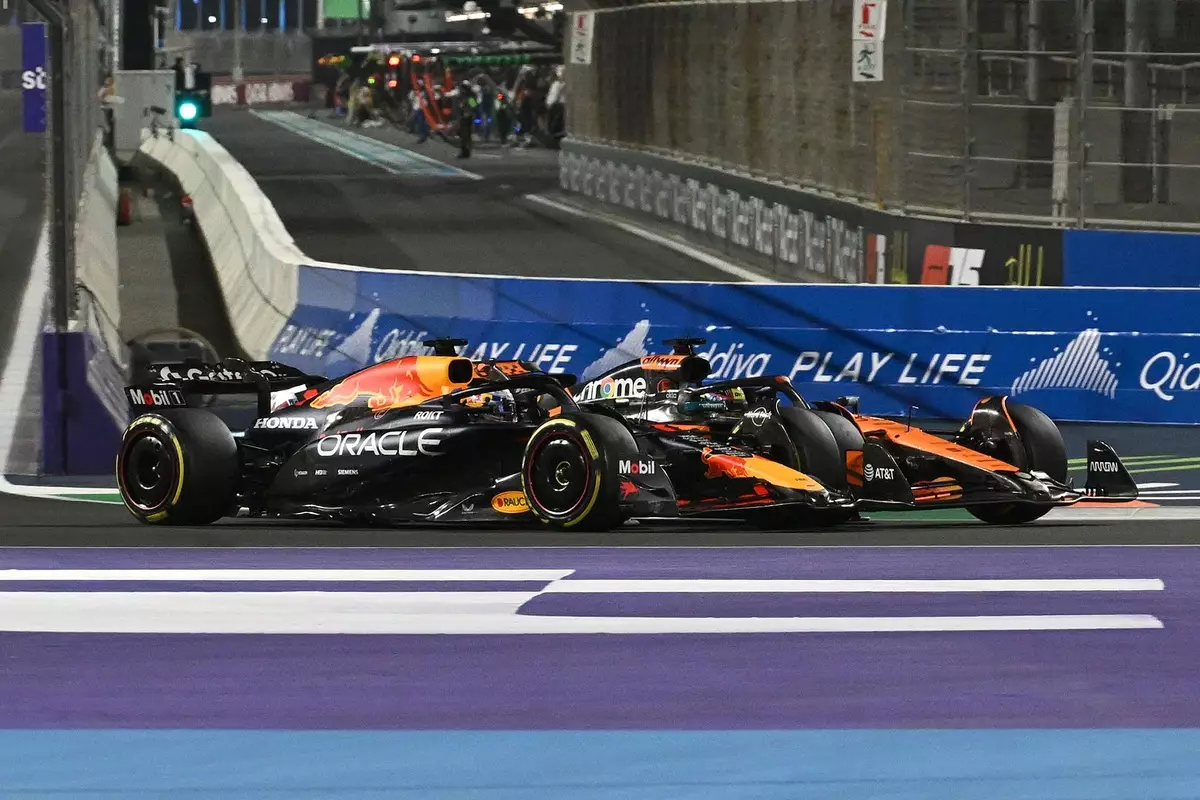In a race defined by adrenaline-pumping drama and split-second decisions, the Saudi Arabian Grand Prix recently became a focal point for discussions around the nuances of Formula 1 regulations. At the center of the storm? A five-second penalty handed to Max Verstappen after an intense early battle with McLaren’s Oscar Piastri. This decision by the FIA sparked an outcry not only from Verstappen and his Red Bull team but also from fans and pundits alike, who debated the merits and implications of the penalty in the broader context of competitive racing.
Verstappen’s penalty was inspired by an incident where he left the track, allegedly gaining a significant advantage while overtaking Piastri. A closer examination of the race reveals that Verstappen’s actions were sparked by a defensive maneuver from Piastri, leaving it to stewards to interpret whether the Dutchman had, in fact, gained an unfair advantage. This scenario presents a profound internal conflict within the sport: the interpretation of “gaining an advantage” often varies considerably from one race to another, raising questions about consistency and governance in FIA’s regulatory decisions.
The Decision Not to Appeal
After reflecting on the situation, Red Bull formally decided against filing a right-of-review petition regarding the penalty. Team principal Christian Horner made it clear that while they believed the stewards’ verdict was flawed, pursuing an appeal seemed unlikely to bear fruit. The decision not to appeal is emblematic of the complex relationship that teams maintain with the regulatory bodies of Formula 1. While the opportunity to protest exists, it is often fraught with the risk of disappointing outcomes, pushing teams to weigh the potential benefits against the probability of reinforcing the original ruling.
Horner’s frustration mirrored the emotional reactions from fans and analysts alike. Despite acknowledging that appealing a decision against an established stewards’ ruling could lead to more stringent enforcement of the regulations, Horner passionately argued that Red Bull’s position warranted reconsideration. Herein lies a critique of the FIA’s proceedings: if teams are left feeling invalidated in their perspectives, how can the sport progress toward improving regulations for all contenders?
The Wider Implications for F1 Racing
The incident at the Saudi Arabian Grand Prix is indicative of a broader challenge facing Formula 1: the framework of governance often appears inconsistent and susceptible to subjective interpretations. Each race brings its own challenges, and as teams explore the battleground of meritocracy, the need for clear, consistent guidelines becomes increasingly crucial. As viewers, we crave clarity during these exhilarating contests, yet frequently witness the ambiguity that surrounds officiating decisions.
Moreover, the age-old question of what constitutes gaining a lasting advantage pervades every race weekend. With technological advancements and evolving strategies, teams are continuously pushing the envelope, so it is paramount for the FIA to establish clear guidelines that demarcate acceptable conduct on the track. In the case of Piastri and Verstappen, the ambiguity surrounding the on-track skirmish raises questions not only about the actions taken but about whether the FIA effectively communicates its adjudications to the teams involved.
The Balance between Competition and Regulation
One cannot overlook the hurdles faced by the FIA in ensuring that competitive racing does not devolve into chaos. The stewardship of Formula 1 demands a balance between allowing teams to race fiercely while upholding integrity and fairness. In this case, one must consider whether the penalty applied to Verstappen was an overly stringent interpretation of the rules or a necessary check against aggressive racing tactics.
The FIA’s responsibility is not only to enforce rules but to foster an environment where the sport thrives; an environment where both competitors and fans feel a sense of justice and transparency. The concern is that by not upholding the principles of fairness and clarity, the excitement and fervor surrounding Formula 1 risk being overshadowed by a perception of favoritism or arbitrariness in officiating.
As the debate surrounding Verstappen’s penalty continues, it serves as a reminder: in the world of high-speed racing, every decision made in the heat of competition must be scrutinized not just for its immediate implications but for how it shapes the landscape of the sport as a whole.

